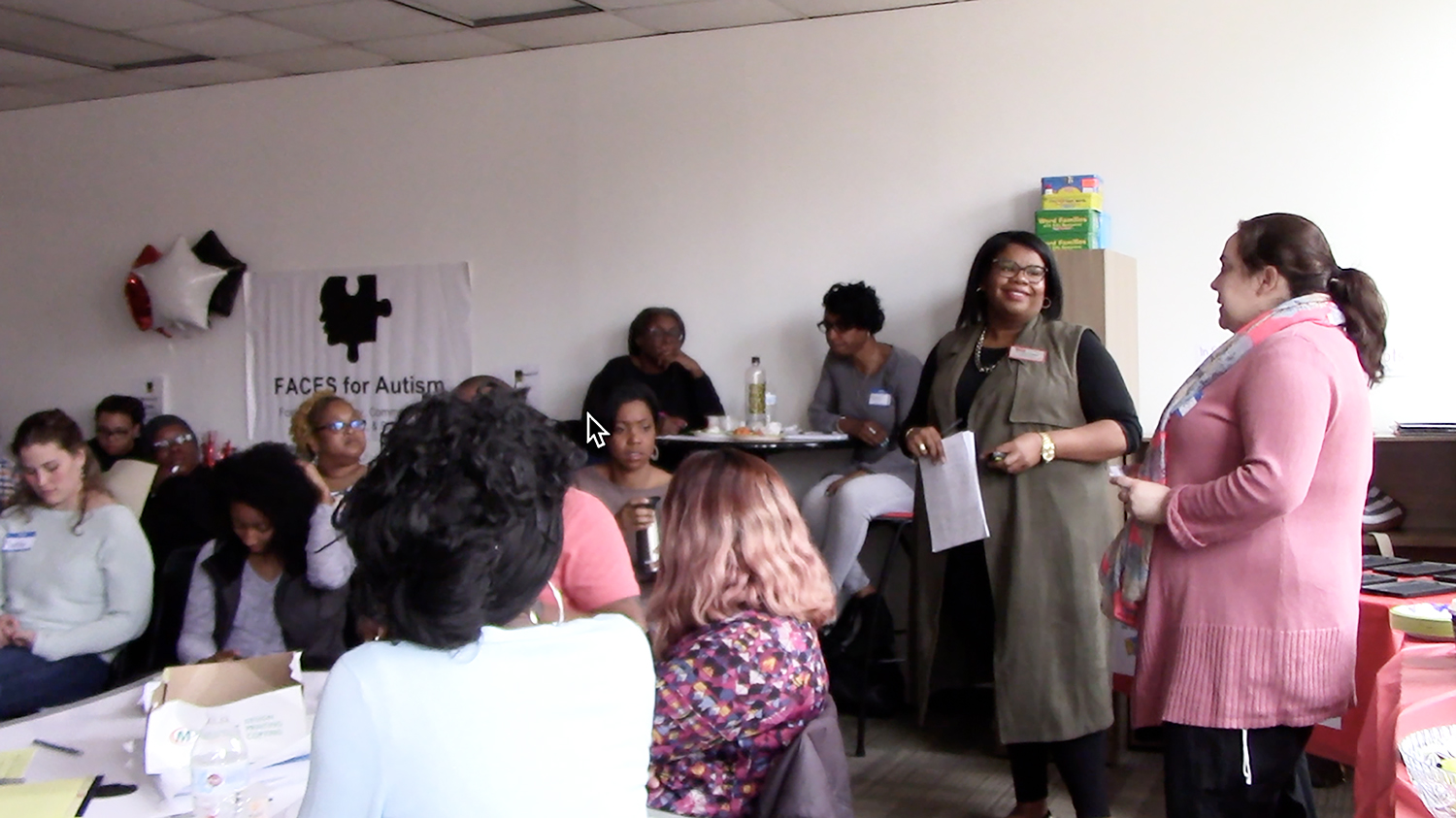FACES Program Hopes to Connect Families of Children with Autism to Resources, Each Other Through Community Events

Lonnie Manns ’20MAT, a student in the NC State College of Education’s Ph.D. in Teacher Education and Learning Sciences’ educational equity program area of study and the graduate research assistant for FACES Parent Advocacy Program, is hoping to help build a stronger community for families of children with autism.
Started by Assistant Professor Jamie Pearson, the FACES program aims to inform and empower historically underrepresented families and caregivers of children with autism by addressing inequities in access and support services, specifically among Black families, who often face disparities when it comes to being diagnosed.
Traditionally, FACES events have included workshops that connect historically underrepresented families of children with autism to appropriate resources, but a result of those workshops has been the formation of a community of families who can support each other as they navigate life with a child with autism, Manns said.
“People are like, ‘Wow, I’ve always felt so isolated,’ but seeing other African American families has been a really big benefit. We want to do something to really provide a forum to help build that autism community,” he said.
On Nov. 6, FACES will host the FACES Autism Community Outreach event at John Chavis Memorial Park in Raleigh, North Carolina. The event, which is open to all families, will feature a food truck, costumed characters and games, and will serve as an opportunity for the FACES team to introduce themselves to the community.
Manns said he hopes to ultimately host regular FACES community events to continue building the autism community and connect more African American families to resources and each other.
“What I imagine would be every quarter we’re doing an event that invites families with children with autism and just having a place for community,” he said. “It’s a place to learn from each other, a place to figure out other events and activities that are going on, talk about the different schools in the area and talk about the different resources in the area.”
Manns knows firsthand, from experiences with autism in his personal life, how difficult it can be to navigate necessary services and resources. This difficulty can often be magnified for those who are from a historically underrepresented group or a low-income background.
For example, Manns said, many families do not know that the Autism Society of North Carolina, which partners with FACES, will send a representative to attend an individualized education program (IEP) meeting with caregivers who request it.
Through outreach efforts, Manns said he hopes to connect families with key workshops and videos, guide them to understand the right questions to ask when navigating the diagnosis and IEP process and leverage the many free resources that already exist.
“We’re really trying to establish a good community and start the discussion to normalize our experiences,” he said. “We have to normalize that this diagnosis is not an anomaly. Autism is the fastest growing developmental disability and we have to get this out of the shadows, make people more open and get people talking.”
- Categories:


